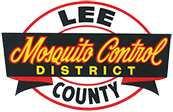Yes. Mosquito attraction to humans is a very complex matter. Primarily mosquitoes are attracted to the carbon dioxide (CO2) emitted from the breath and pores of humans. Mosquitoes are attracted to lactic acid, a by-product of human metabolism found in sweat. Mosquitoes are also attracted to fragrances, body heat, moisture, dark colors, and movement. During mosquito season it is recommended that people who wish to be less attractive to mosquitoes wear unscented products and light colored clothing. Odors produced by skin microflora also play a part in inducing the mosquito to land. Over 350 compounds have been isolated from odors produced by human skin. Either singly or in combination, many of these compounds may be attractants – and many may be repellents. Visual stimuli, such as movement, also factor into host-seeking behavior by mosquitoes. Mosquito attraction is complicated and will require many years of testing before it can be completely sorted out.
What can be safely stated, though, is that ingestion of garlic, vitamin B12 and other systemics has been proven in controlled laboratory studies to have no impact on mosquito biting. Conversely, eating bananas did not attract mosquitoes as the myth suggests, but wearing perfumes does. People drinking beer have been shown to be more attractive to mosquitoes. Limburger cheese has also been found to be attractive. Scientists have theorized that this may explain the attractancy some mosquitoes find for human feet.
Another way to become less attractive to mosquitoes is to wear a commercially available, proven mosquito repellent. The District follows the Center for Disease Control recommendations on repellent.
CDC evaluation of information contained in peer-reviewed scientific literature and data available from EPA has identified several EPA registered products that provide repellent activity sufficient to help people avoid the bites of mosquitoes. Products containing these active ingredients typically provide reasonably long-lasting protection:
- DEET (Chemical Name: N,N-diethyl-m-toluamide or N,N-diethly-3-methyl-benzamide)
- Picaridin (KBR 3023, Chemical Name: 2-(2-hydroxyethyl)-1-piperidinecarboxylic acid 1-methylpropyl ester )
- Oil of Lemon Eucalyptus* or PMD (Chemical Name: para-Menthane-3,8-diol) the synthesized version of oil of lemon eucalyptus
- IR3535 (Chemical Name: 3-[N-Butyl-N-acetyl]-aminopropionic acid, ethyl ester)
EPA characterizes the active ingredients DEET and Picaridin as “conventional repellents” and Oil of Lemon Eucalyptus, PMD, and IR3535 as “biopesticide repellents”, which are derived from natural materials.
Posted in: FAQs
